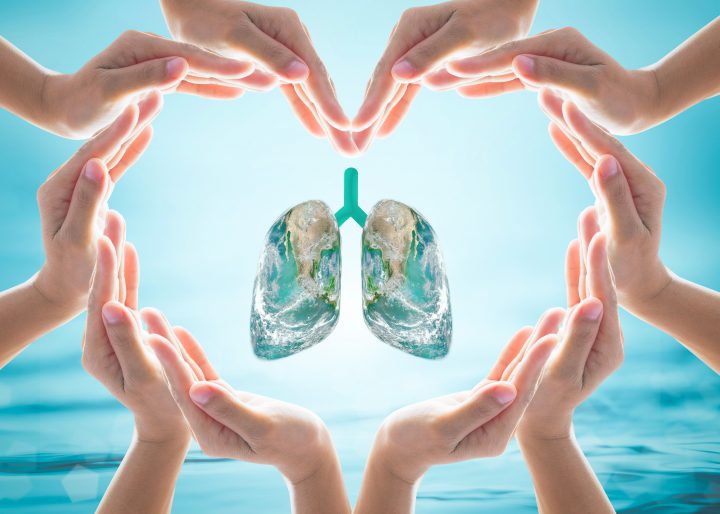Diseases such as lung cancer and their treatments can take a toll on mental and physical health, apart from impacting the quality of life. However, staying positive and adopting healthy coping mechanisms throughout the treatment can improve the outcomes by maximising healing and recovery.


It is important to talk to your doctor about the available treatment options, duration of the treatment, and what to expect during the treatment.
Some of the questions you can ask your doctor include:
Adequate nutrition can help you cope with lung cancer treatment. Here are a few tips on ensuring that your diet is healthy:
Breathlessness is a common concern for those with lung cancer and can cause panic, which in turn worsens breathing. Talk to your doctor if you are experiencing difficulty with breathing.
Try these tips to breathe better and to feel calmer:
An occupational therapist can help you with exercises to improve breathing.
Lung cancer and its treatment may cause drastic changes in your body, both physically and emotionally. This might affect the way you feel about yourself. For instance, breathlessness is a symptom of lung cancer and it can make you anxious.
These points can help you to know the expectations from the treatment and condition, and stay confident in your journey-
We recommend consulting a medical specialist to know the best options to cope up with these post/on-treatment journey, as they can help assess your condition better.
One of the practical coping mechanisms is to speak with people who have experienced or are experiencing similar conditions. Cancer support groups are now widely encouraged in countries like India, where people with similar conditions can share their emotions, feelings and together stay confident in their journey of managing their cancer.
Also, events such as Onco.com’s TYHO (Talk Your Heart Out) invites cancer survivors and people currently undergoing treatment, encouraging them to speak about their condition, and stay strong and mentally healthy throughout their journey. TYHO was founded in April 2019 and conducted its 12th support gathering at Bangalore recently on the 12th of January 2020.
You can follow Onco.com’s Facebook page, to get information and updates on TYHO’s upcoming events.
For more information on lung cancer treatment and the ways to optimize its outcome, consult a lung cancer specialist in your area.
కీమోథెరపీ కోసం క్యాన్సర్ రోగులు ఎలాంటి దుస్తులు ధరించాలో తెలుసా? ఈ ఆర్టికల్లో, క్యాన్సర్ రోగులకు కీమోథెరపీని సౌకర్యవంతంగా పొందడంలో సహాయపడే దుస్తుల జాబితాను అందించాము.
ఈ కథనం మీ క్యాన్సర్ రకానికి సరైన క్యాన్సర్ వైద్యుడిని కనుగొనడానికి 6-దశల గైడ్ను వివరిస్తుంది.
तंबाकू का सेवन गुटका, जर्दा, पैन मसाला आदि के रूप में करना सिर और गले के कैंसर का मुख्य कारण…
నోటి పుండ్లతో బాధపడుతున్న క్యాన్సర్ రోగులకు క్యాన్సర్ చికిత్సలో ఉన్నప్పుడు తీసుకోవాల్సిన 12 ఉత్తమ ఆహారాలు.
క్యాన్సర్కు కారణమయ్యే 6 జీవనశైలి కారకాలు గురించి ఈ కథనంలో వివరంగా ఇవ్వబడ్డాయి. అవి ఏమిటో తెలుసుకోండి!
शोध की मानें तो न्यूज़पेपर प्रिंट करने में जो स्याही का इस्तेमाल होता है उसमें ऐसे केमिकल होते हैं जो…